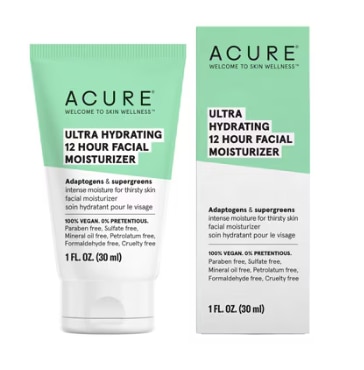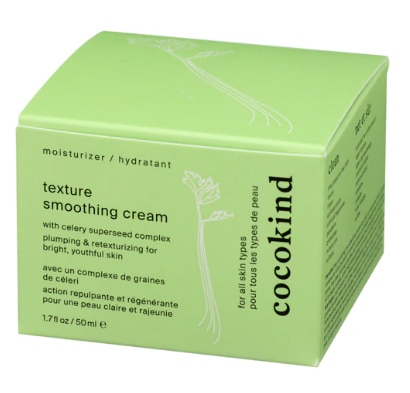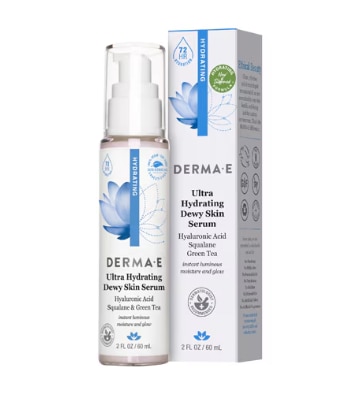In the realm of skincare, hydration reigns supreme. While hyaluronic acid has long been hailed as the gold standard for quenching parched skin, nature’s beauty pantry offers a treasure trove of alternative ingredients that rival its hydrating prowess. These unsung heroes, often overlooked in favor of the ubiquitous hyaluronic acid, possess unique properties that can nourish, plump and rejuvenate your complexion.
Let’s explore some of these lesser-known yet equally effective hydrating ingredients. From botanical extracts to soothing vitamins, these natural wonders hold the power to transform your skincare routine and reveal a radiant, hydrated glow.
But first, a shout-out to hyaluronic acid
Before we delve into alternative hydrating ingredients, it’s essential to understand the power of hyaluronic acid. As noted by aesthetics practitioner and clinical pharmacist Farzin Ghayedy of Just Feel Healthcare, “Hyaluronic acid is a naturally occurring molecule in the skin that can hold up to 1,000 times its weight in water, making it an exceptional hydrator.” This remarkable ability to retain moisture makes hyaluronic acid a beloved ingredient in countless skincare products.
When applied topically, hyaluronic acid can help:
- Replenish moisture: Counteracts the effects of aging, which can lead to decreased natural hyaluronic acid production and dryness.
- Smooth skin texture: Improve the appearance of fine lines and wrinkles.
- Boost elasticity: Enhance skin’s firmness and youthful appearance.
However, while hyaluronic acid is undeniably effective, exploring alternative options can provide a wider range of benefits and cater to specific skin needs.
4 Effective Hydrating Skin Care Ingredients
Glycerin
Glycerin, a humectant that draws moisture into the skin, is found in many skincare products. When used consistently, it maximizes hydration, said Sarah Yovino, a double board-certified master injector cosmetic specialist in non-surgical medical aesthetics and whole-body rejuvenation.
While hyaluronic acid hydrates the skin’s surface, glycerin penetrates layers for deep, sustained hydration. Using it in serums, toners and moisturizers helps maintain the skin’s moisture barrier, Ghayedy said.
“Glycerin pairs well with occlusive ingredients like squalane or oils to lock in moisture,” Ghayedy noted. It’s gentle and generally suitable for all skin types and sensitivities, so you can use it twice daily in the morning and evening.
Polyglutamic acid
Polyglutamic acid (PGA), an amino acid, is a highly hydrating ingredient commonly found in serums and moisturizers. Many people underestimate its potency. “It’s said to be 4-5 times more effective than hyaluronic acid in retaining moisture,” Ghayedy said.
Like glycerin and hyaluronic acid, PGA is a humectant but goes further to prevent water loss by forming a protective film on the skin’s surface. PGA works well with other hydrators like glycerin and ceramides, the latter with many benefits, including restoring the skin barrier.
Ghayedy suggests using PGA with ceramides or glycerin at night rather than in the day, especially for dry, sensitive skin types.
Panthenol
Panthenol, a form of vitamin B5, is a hydrating skin agent particularly useful for people with sensitive skin, skin conditions, or acne. “Panthenol reduces inflammation and helps skin retain moisture,” said Yovino.
As a humectant, it binds water to the skin, improving hydration and softness. “Found in serums, creams and toners, panthenol works synergistically with other humectants like glycerin or hyaluronic acid to amplify hydration and can be used daily,” Ghayedy said.
Its soothing properties make it ideal for post-exfoliation or healing irritated skin.
Snow mushroom
Snow mushroom (Tremella fuciformis) is a natural humectant like hyaluronic acid, with smaller molecules to penetrate deeper, and the ability to hold up to 500 times its weight in water, thus hydrating and boosting plumpness and elasticity. “Snow mushroom forms a protective barrier and promotes skin’s natural moisturizing factors,” Dr. Yovino said. It’s used in serums, masks, cleaners and moisturizers for rich hydration and is often combined with hydrators like glycerin, ceramides or hyaluronic acid. Try using it twice daily, particularly in the winter or in dry climates.
Snow mushroom (Tremella fuciformis) is a natural humectant, similar to hyaluronic acid but with smaller molecules that penetrate deeper into the skin. It can hold up to 500 times its weight in water, providing intense hydration and boosting plumpness and elasticity.
“Snow mushroom forms a protective barrier and promotes the skin’s natural moisturizing factors,” Yovino said.
It’s used in serums, masks, cleansers and moisturizers for rich hydration and is often combined with other hydrators like glycerin, ceramides or hyaluronic acid. Try using it twice daily, especially during the winter or in dry climates.
Ultra Hydrating Skin Care Products to Try
While hyaluronic acid remains a popular choice for hydration, these alternative ingredients offer equally effective and sometimes even superior benefits. Consider incorporating them into your skincare routine to experience the full potential of nature’s hydrating powers.
Acure Ultra-Hydrating 12-Hour Facial Moisturizer
This moisturizer combines glycerin and snow mushroom for long-lasting hydration, up to 12 hours. Its occlusive properties make it ideal for dry or dehydrated skin.

Cocokind Texture Smoothing Cream
Cocokind cream blends glycerin and squalane to soothe and soften the skin. It also contains antioxidants, including celery extract, to brighten the skin and improve pore appearance.

Derma E Hydrating Serum
This serum offers a powerful combination of glycerin, panthenol and snow mushroom, along with vitamin C for brightening and antioxidants for balanced skin. It’s particularly suitable for those with irritated or sensitive skin.

By exploring these alternative hydrating ingredients, you can discover a personalized skincare routine that leaves your skin feeling refreshed, revitalized and glowing.
The post Hydrating Skin Care: 4 Next-Gen Ingredients That Rival Hyaluronic Acid for Moisture first appeared on The Upside by Vitacost.com.


